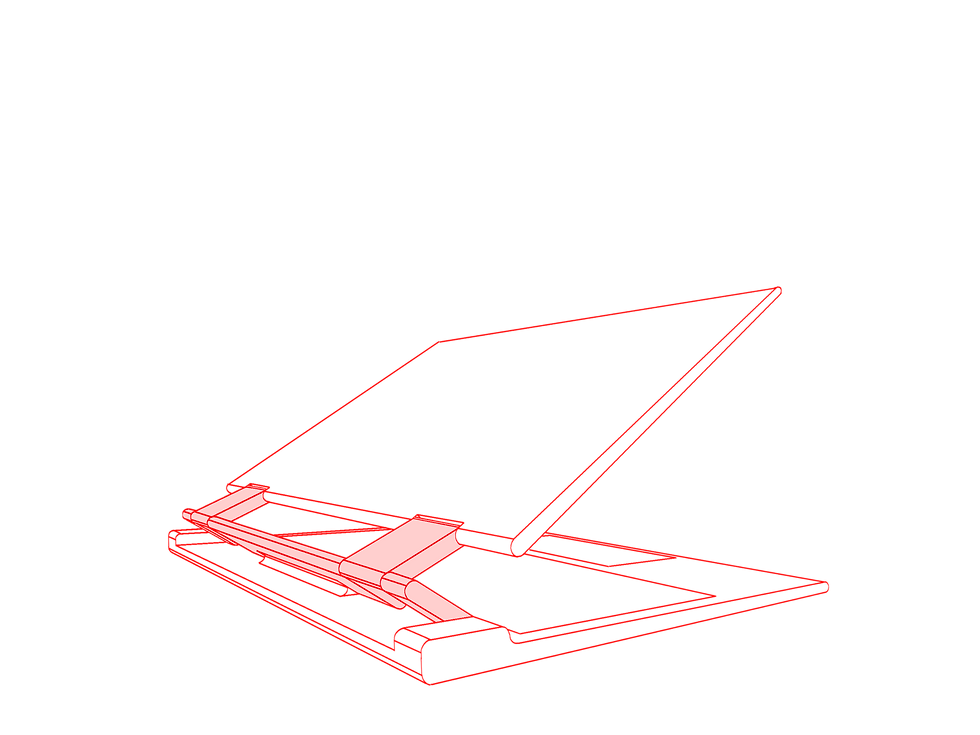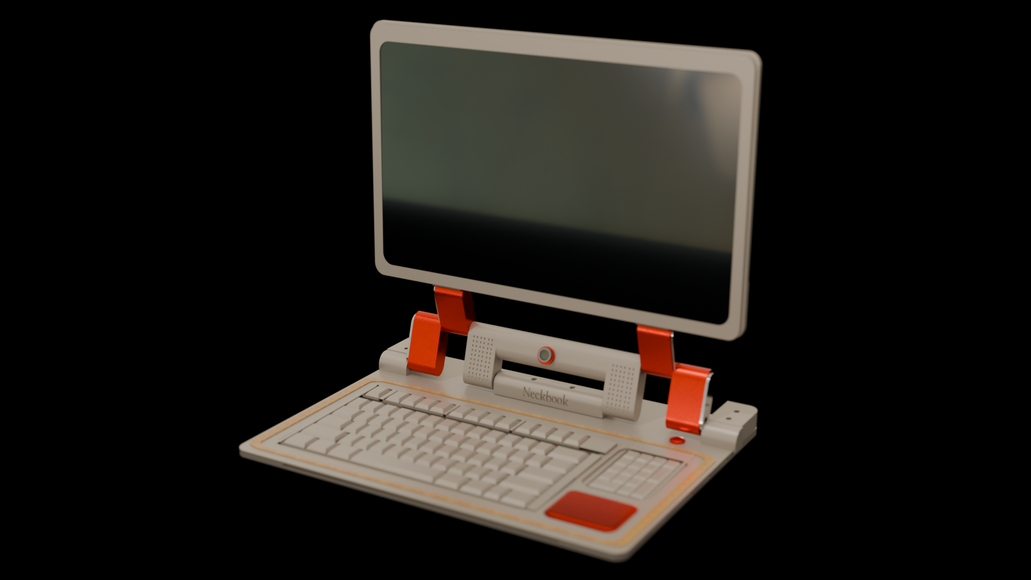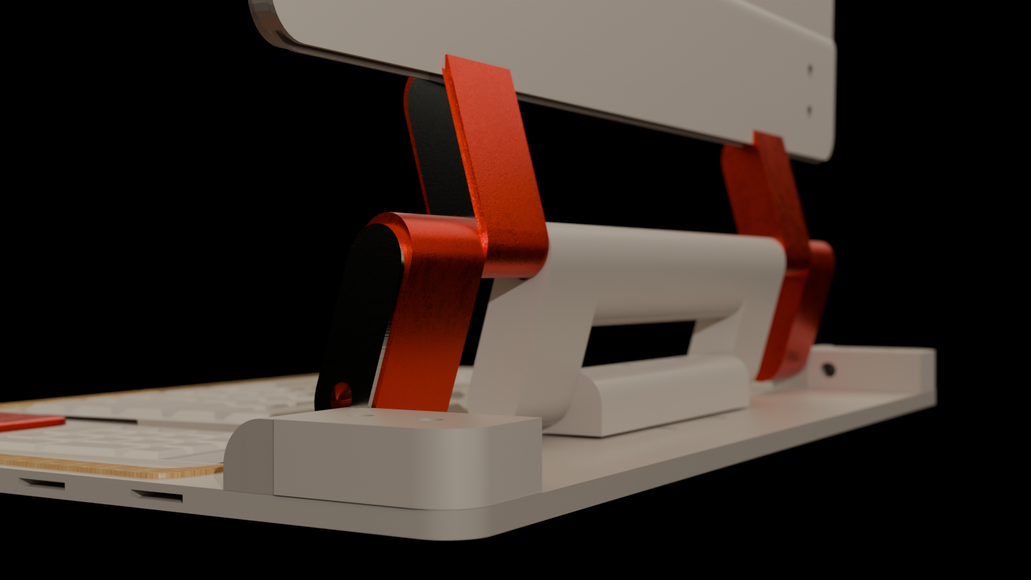Contextualization
In the starting phase of the project, our goal was to understand our case owner's challenges and context by conducting interviews, literature research, and gathering insights to formulate an initial design challenge and create a list of requirements for the product.
Ideation to Concept
In the second phase, we ideated and developed five concept directions, addressing different challenges faced by the case owner. A co-design session was then conducted, providing valuable insights such as preferred style and concept direction, which helped refine the design challenge and requirements, leading to the creation of a final concept.
Final Concept & Prototype
In the final phase, we further developed our chosen concept into a complete design, creating a mid-fidelity prototype to demonstrate the functionality of the hinge mechanism. After completing the prototype, we evaluated it, testing multiple user scenarios to ensure its effectiveness.
The Process


User Interaction
The laptop is the ideal size for both portability and comfort. It is compact enough to be easily carried with lightweight materials, yet large enough to offer a screen that’s comfortable to view.




The Assignment
In this project, we are designing for a specific user. For our case owner, we got assigned a person with neck pain. Our goal was to co-design a product, system, or service that supports them in maintaining a healthy lifestyle while addressing their specific needs and preferences. We developed our final product through a collaborative process, including interviews, ideation and co-design sessions with our case owner.

The Product
Our case owner's biggest challenge was the low height and small screens of modern laptops, which forced them to look down, worsening their neck pain. To address this, we designed a laptop with an adjustable screen, featuring a hinge with a lifting mechanism that allows the screen height to be customized to their preference
The Product
Our case owner's biggest challenge was the low height and small screens of modern laptops, which forced them to look down, worsening their neck pain. To address this, we designed a laptop with an adjustable screen, featuring a hinge with a lifting mechanism that allows the screen height to be customized to their preference





With its innovative hinge mechanism, the laptop offers a fully adjustable design. The screen opens and closes easily, and the height can be easily customized without being limited to a single fixed position.
Details
Meet the Case Owner
Meet the Case Owner
The case owner is a 60-year-old married woman who lives on a farm. As the board director of a health care center, They have a demanding job but maintain a very active lifestyle. They enjoy sports, movement and especially horseback riding.
Due to a horse-riding accident 20 years ago, they now suffer from neck pain. They have osteophytes and a hernia in their cervical spine. Their hypermobility further contributes to their discomfort. One of their biggest challenges is looking down at their laptop for extended periods of time, and they are seeking a solution to reduce their neck pain.





With its innovative hinge mechanism, the laptop offers a fully adjustable design. The screen opens and closes easily, and the height can be easily customized without being limited to a single fixed position.
Details


The laptop is the ideal size for both portability and comfort. It is compact enough to be easily carried with lightweight materials, yet large enough to offer a screen that’s comfortable to view.
User Interaction
Contextualization
In the starting phase of the project, our goal was to understand our case owner's challenges and context by conducting interviews, literature research, and gathering insights to formulate an initial design challenge and create a list of requirements for the product.
Ideation to Concept
In the second phase, we ideated and developed five concept directions, addressing different challenges faced by the case owner. A co-design session was then conducted, providing valuable insights such as preferred style and concept direction, which helped refine the design challenge and requirements, leading to the creation of a final concept.
Final Concept & Prototype
In the final phase, we further developed our chosen concept into a complete design, creating a mid-fidelity prototype to demonstrate the functionality of the hinge mechanism. After completing the prototype, we conducted a co-testing session with the case owner, testing multiple user scenarios to ensure its effectiveness.




